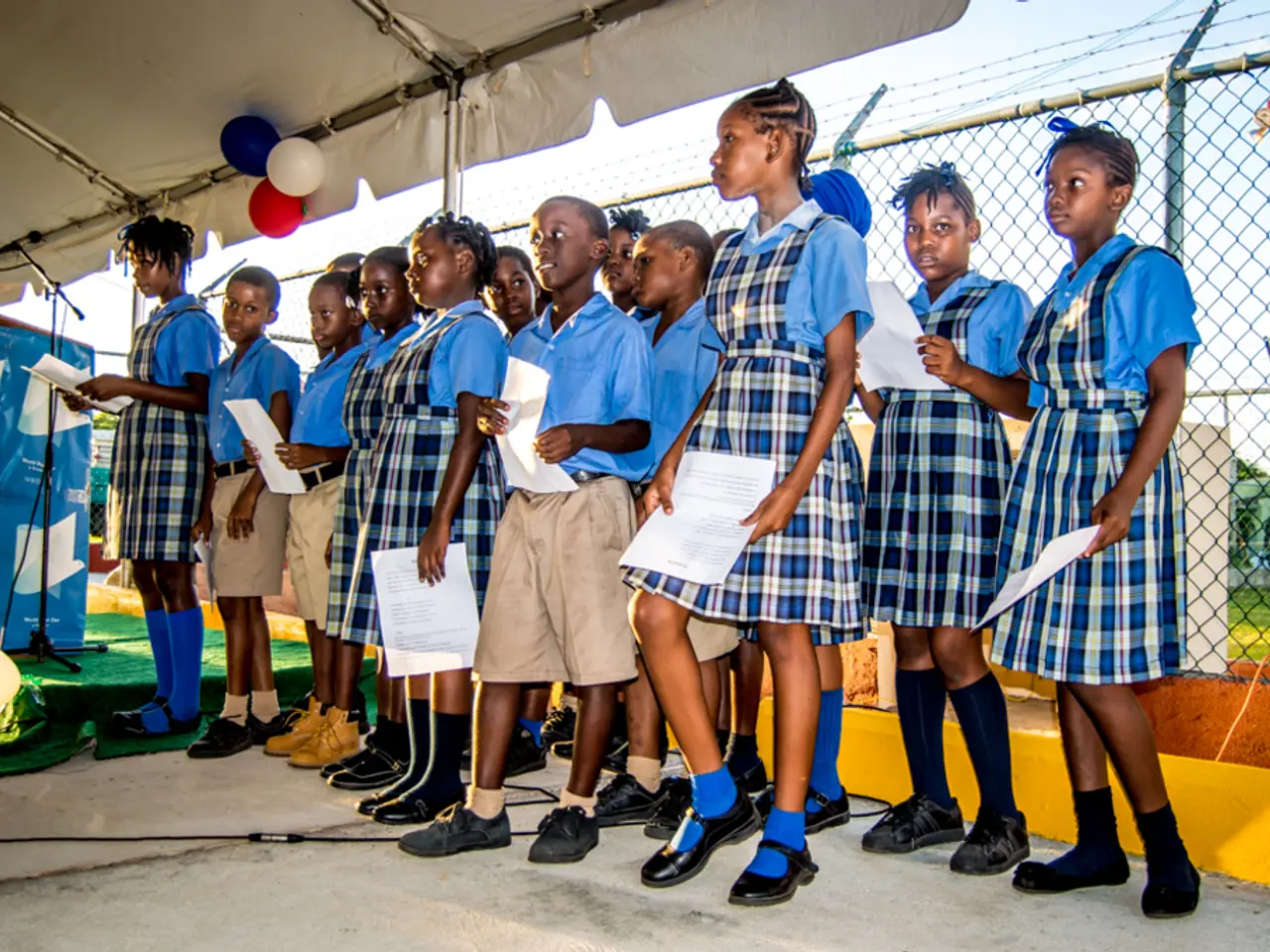Teenagers from Gaza, after being released from Israeli detention, exhibit signs of severe mistreatment
In a shocking turn of events, ten Palestinian teenage boys were released from Israeli custody after nearly a month, showing visible signs of severe physical abuse, torture, starvation, and exhaustion. The boys were detained near the al-Shakoush aid distribution site in northwest Rafah, Gaza, which is supposed to be a “safe corridor” for humanitarian aid.
According to survivors, the al-Shakoush site turned into a trap where they endured constant beatings, humiliation, and were given rotten food while their hands were tied. Some teenagers remain detained in Israel, including at the Sde Teiman prison, known for abusive conditions.
The released teens were transferred from Israeli custody to the International Committee of the Red Cross and then moved to Nasser Hospital in Khan Younis, Gaza, where their injuries and poor physical state were documented by journalists. One of the boys, Karam Hamdi Hussein, described continuous beatings and poor treatment, while another teenager named Omar was reportedly too weak to speak due to extreme fatigue.
This case highlights growing concerns and reports of abuses by Israeli forces at aid distribution points in Gaza, challenging the premise that such sites remain safe for humanitarian relief operations.
As of now, there is no recent information about subsequent investigations, official responses, or the current status of the remaining detainees beyond these released teenagers. The Israeli government has made no official comment on the teens' detention or the circumstances surrounding their release.
This incident comes amid growing reports of alleged violations by Israeli forces at aid distribution points in Gaza, with more than 1,083 people having been killed and over 7,275 wounded while attempting to access food at aid distribution points since the war began. The Israeli military has faced a genocide case at the International Court of Justice over its war in the enclave, and Israel has killed more than 59,500 Palestinians - most of them women and children - in the Gaza Strip since October 2023.
UNRWA Commissioner-General Philippe Lazzarini urged Israel to lift the blockade and allow safe distribution of food under U.N. supervision due to the risk of accessing aid in Gaza becoming a "death trap." In November, the International Criminal Court issued arrest warrants for Israeli Prime Minister Benjamin Netanyahu and former Defense Minister Yoav Gallant on charges of war crimes and crimes against humanity in Gaza.
- The release of the ten Palestinian teenage boys from Israeli custody has brought attention to the poor health conditions and alleged mistreatment of refugees, sparking discussions in general news, politics, and mental-health circles.
- In light of the beatings, humiliation, and starvation the boys experienced, the need for defense and justice mechanisms to ensure the safety and health-and-wellness of refugees in war-and-conflicts zones has become a pressing concern.
- As scientists and policymakers continue to explore solutions for addressing these issues, reports of further alleged violations at aid distribution sites in Gaza, such as the al-Shakoush incident, raise questions about the effectiveness of current strategies and the accountability of those involved.
- The fitness-and-exercise routines of children and teenagers in Gaza have also been impacted by the situation, with many unable to access proper facilities and nutrition, putting their long-term health and development at risk.
- The International Committee of the Red Cross, UNRWA, and International Criminal Court have taken attempts to halt these abuses and hold those responsible for crimes against humanity accountable, issuing reports, launching investigations, and pursuing arrest warrants against key political figures like Benjamin Netanyahu and Yoav Gallant.




